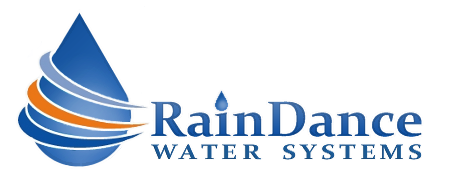
Iron Filters For Marijuana Growers, Craft Beer Brewing, Irrigation Water & More.
The RainDance Water Systems H2OBuyersGuide.com
Water Filtration Systems for Commercial Business, Irrigation, Brewing, Growing, Blending, Well Water Treatment and More!
The RainDance H2O Buyers Guide is widely recognized as one of the most comprehensive directories for commercial businesses in search of optimum well water quality. This resource features information on products that provide well water filtration for marijuana growers, craft beer brewers, coffee & tea shops, vineyards, irrigation, hydroponics and more. Product Listings are updated regularly, providing the most current information. The RainDance Commercial Business Online Buyers Guide is the one source for all of your facility and well water treatment needs
WELL WATER FILTER INFORMATIONIron & Manganese in Groundwater
- What are iron and manganese?
- Iron (Fe) and manganese (Mn) are metallic elements present in many types of rock. Both are found naturally in ground water in most if not all regions of the US. Aesthetic levels for iron in drinking water is less than or equal to 0.3 mg/L or ppm while the level for manganese in drinking water is less than or equal to 0.05 mg/L or ppm. Water with high levels of iron and manganese may cause staining on plumbing fixtures and laundry. High can cause off color, bad bitter tastes, and rust flakes in the water. Similarity, manganese typically form black particles and also give the water an off color and unpleasant taste.
- Calcium & Mangnesium in Groundwater
- What is hard water?
- Water that is hard contains calcium and magnesium compounds. Rain water is naturally soft - it does not contain any minerals, but as it seeps through the ground it can pick up minerals, such as calcium and magnesium compounds, from the soil and rocks it passes through. If rain water passes through soft rocks like chalk or limestone, it picks up these minerals. If it passes through hard rocks, such as granite or through peaty soils, it does not pick up these minerals and so remains soft. Hard water causes pipes to scale to collect in coffee makers, dishwashers and washing machines. If the scale collects in hot water haeters it shortens their life and makes appliances less efficient. It is also more difficult to work up a lather from soap, washing up liquid and washing powders.
- Hydrogen Sulfide in Groundwater
- What is sulfur water?
- Sulfur in your well water supply is easily recognized by its offensive odor. Hydrogen sulfide gas causes "rotten-egg" or sulfur water smell. High concentrations can also change the taste of the water. As well as, corrode metals such as iron, steel, copper and brass. Hydrogen sulfide amounts of 0.5 mg/l or more are usually noticed, even in cold water. Wells drilled in shale or sandstone, or near coal or oil fields often have hydrogen sulfide present.Hydrogen sulfide may also be produced when sulfate in well water converts to hydrogen sulfide. Certain non-disease-producing bacteria (sulfur bacteria) use the oxygen in the sulfate to form hydrogen sulfide.
- Total Dissolved Solids in Groundwater
What is TDS?
Total dissolved solids (TDS) is a measure of the total amount of all the materials that are dissolved in water. These materials, both natural and anthropogenic (made by humans), are mainly inorganic solids, with a minor amount of organic material. Depending on the type of water, TDS can vary greatly from a few milligrams per liter to percent levels (tens of thousands of milligrams per liter). Seawater contains 3.5% (35,000 mg/L) TDS. Elevated TDS levels are often due to natural environmental features such as: mineral springs, carbonate deposits, salt deposits and sea water intrusion, but other sources may include: salts used for road de-icing, sewage, drinking water treatment chemicals, stormwater and agricultural runoff, and wastewater discharges. The U.S. Environmental Protection Agency's (EPA) Secondary Drinking Water Standards recommends that the TDS concentrations in drinking water not exceed 500 mg/L based on taste and aesthetics.- National Secondary Drinking Water Regulations (NSDWRs or secondary standards) are non-enforceable guidelines regulating contaminants that may cause cosmetic effects (such as skin or tooth discoloration) or aesthetic effects (such as taste, odor, or color) in drinking water. EPA recommends secondary standards to water systems but does not require systems to comply. However, states may choose to adopt them as enforceable standards.
- EPA Secondary Drinking Water Limits For The Following:
- Color 15 (color units)
- Chloride 250 mg/L
Corrosivity noncorrosive
Iron 0.3 mg/L
Manganese 0.05 mg/L
Odor 3 threshold odor number
pH 6.5-8.5
Sulfate 250 mg/L
Total Dissolved Solids 500 mg/L
- RainDance Water Systems is a leading ground water filter company providing water treatment solutions, information and technical support for all filtration water treatment products and equipment. Many websites claim to be water treatment "specialist" and offer filters at "rock bottom wholesale prices" However, we have discovered that very few water treatment companies have the knowledge, ability or the equipment selection to effectively treat your ground water problems. We consider iron, manganese and sulfur filters for hydrogen sulfide removal to be our specialty. Please continue on to see how easily we can solve your ground water related iron problems and more.
H2OBuyersGuide.com
provides information and guidance on how our latest water softener,
filtration, and purification technology can enhance, refine, filter,
purify and soften your problem water. We offer water treatment
technologies for City Treated Municipal Water, Private Well Water,
Borehole, River, and Ocean Water Filtration. We can provide you
with RainDance
Water Systems information,
tools, and advice that will help you decide what to buy and how to
get the most out of your commercial, industrial, and residential
whole house water softener and filtration system.
|
Copyright 2005 RainDance Water Systems All Rights Reserved